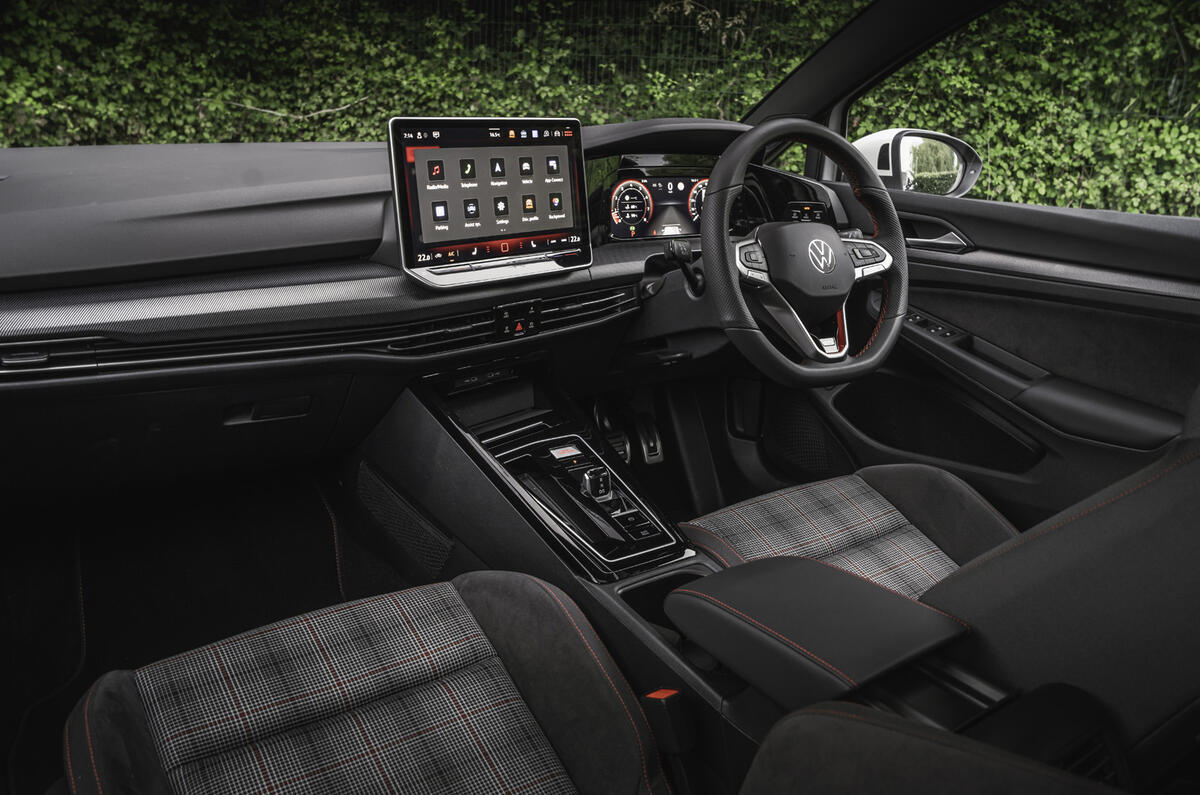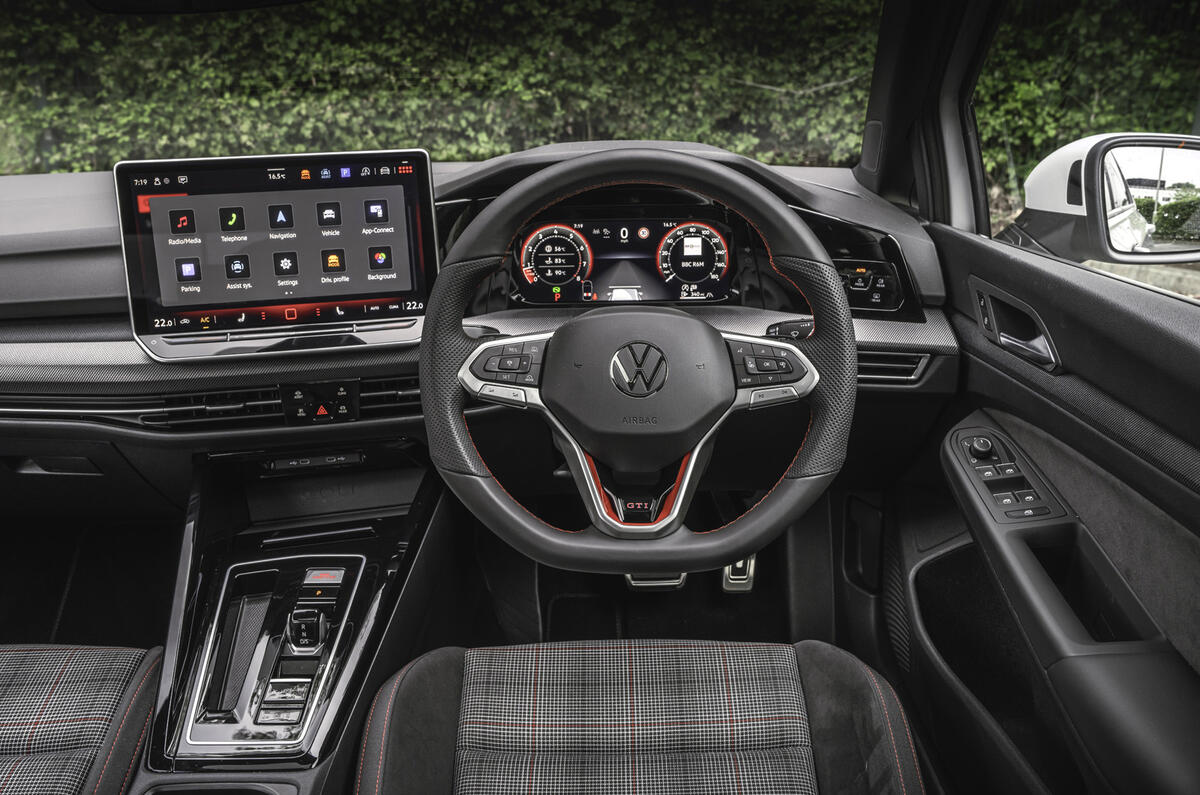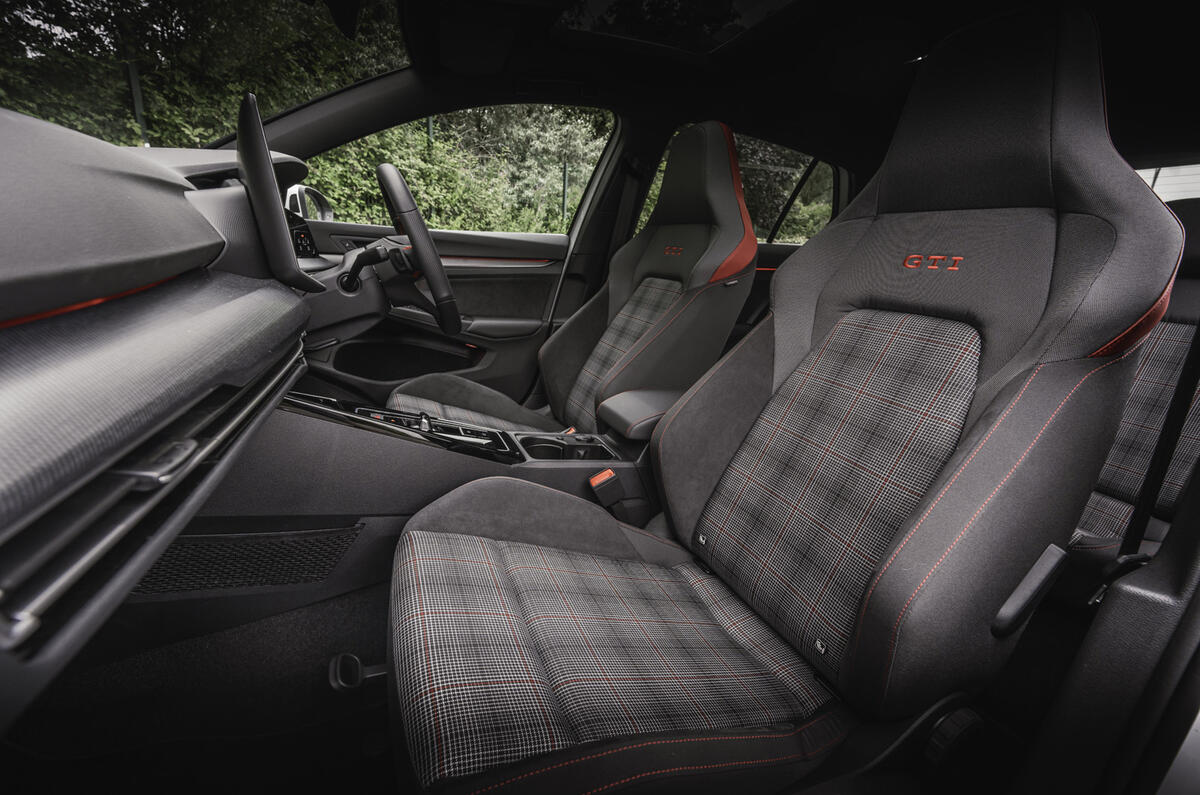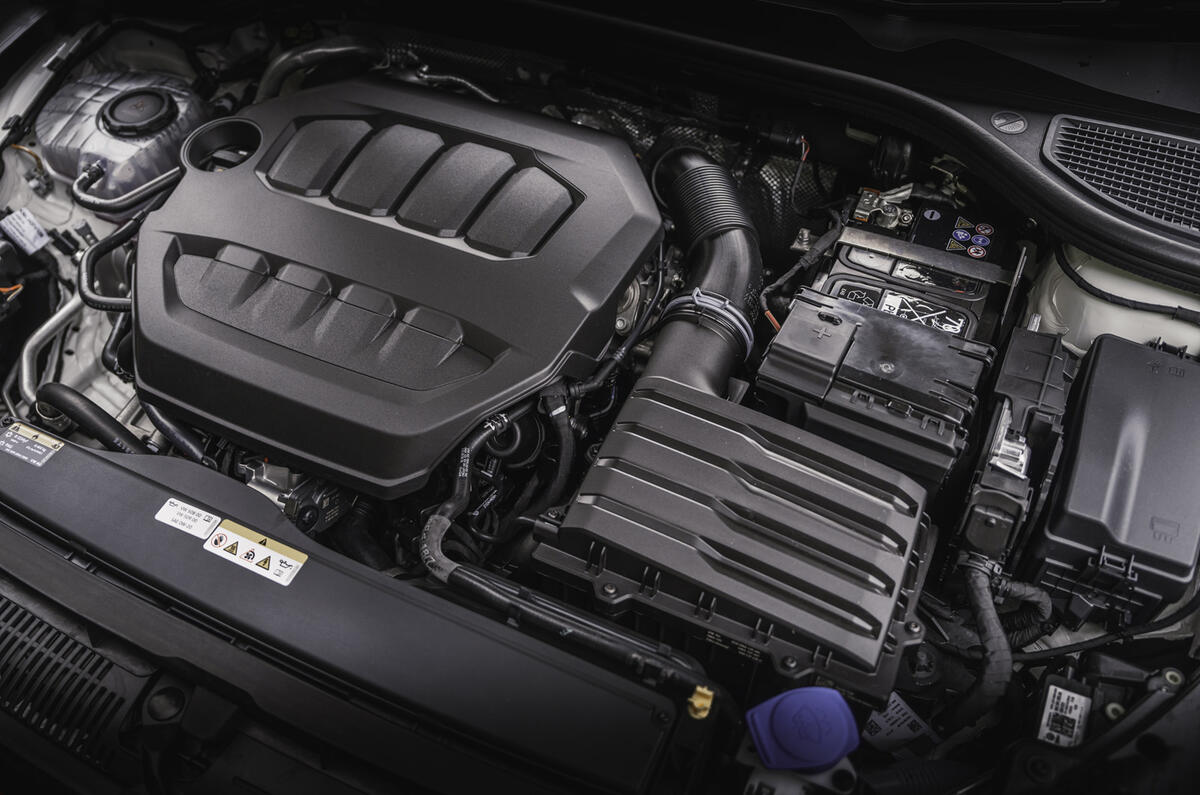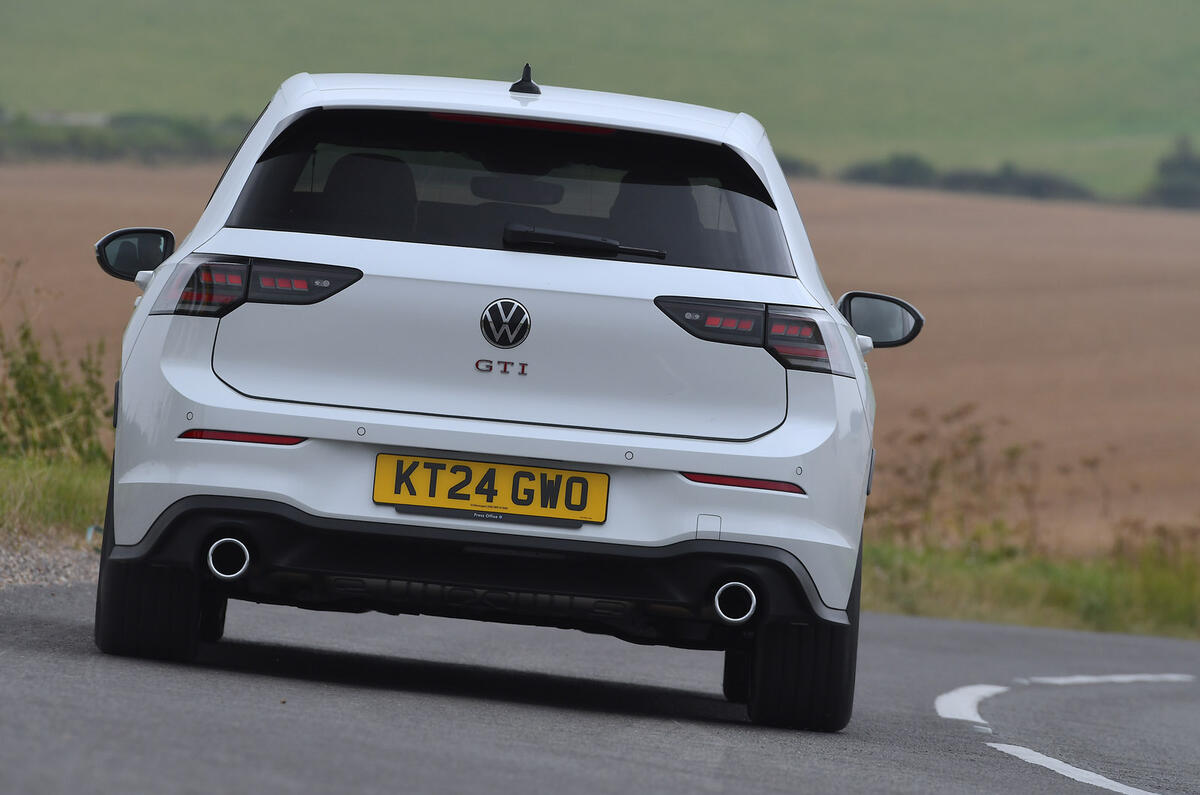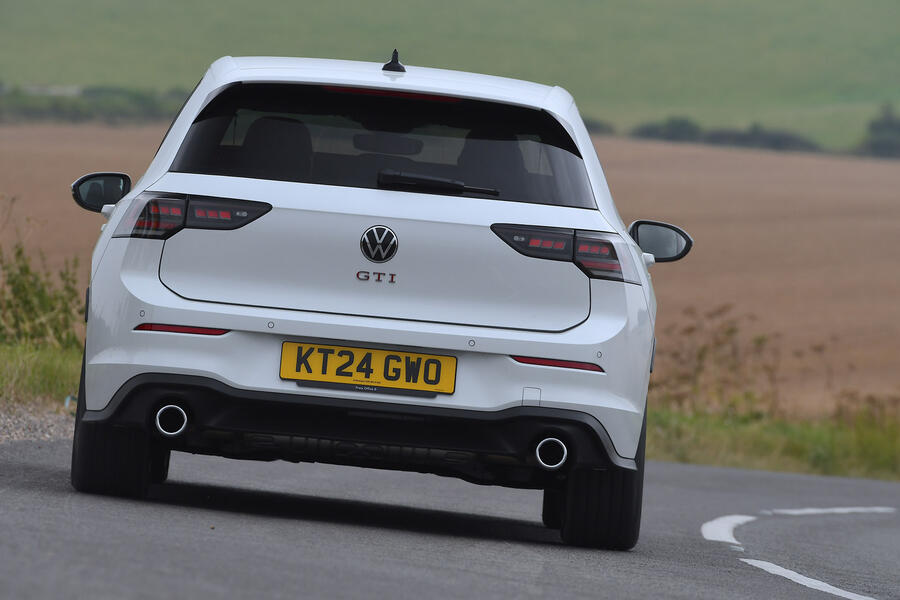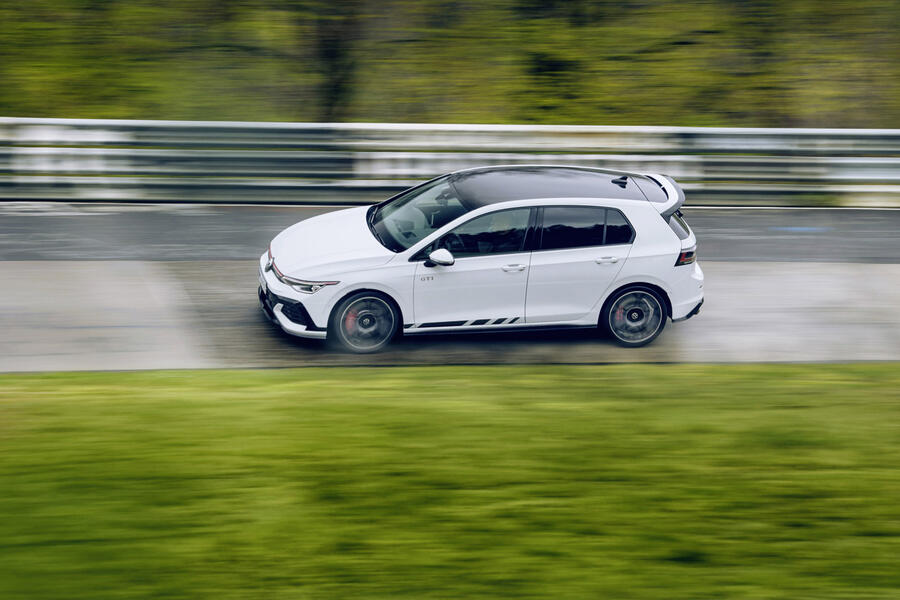The Mk8 Golf GTI was met with some puzzlement over its firmer-riding, more hardcore character. It seemed out of tune for what has always been a less boy-racerish take on the hot hatch. For the updated Mk8.5, Volkswagen hasn’t disclosed any major suspension changes, although its PR team has made the clever move of optioning most of the press fleet with adaptive dampers.
As usual with Volkswagen’s adaptive dampers, you adjust them by moving a slider between 15 (yes, 15!) settings. The differences between consecutive settings are very small, but they do add up to meaningful changes, and this level of fine-tuning does let you play at being a vehicle dynamics engineer.
Set to full soft, the GTI rides with more plushness than you might expect of a hot hatch. As good as the 19in phone dial wheels on our test car look, however, we would stick with the 18s, because the big wheels do trip over potholes and expansion joints. The 235-section Bridgestone Potenzas also emit a fair bit of road noise: we recorded 1dBA more at 70mph than in the Ford Focus ST.
If there’s one thing a hot hatch should be, it’s fun to drive. This, though, is where the GTI struggles a bit. Not because it has major vices, but because it lacks some sparkle.
While the adaptive dampers allow a certain amount of floatiness in their softest setting, moving the slider even just a few notches towards the firmer end gives the GTI plenty of body control to tackle a twisty B-road at speed. We stayed away from the second half of adjustment because it makes the ride very reactive on the UK’s typically bumpy roads.














